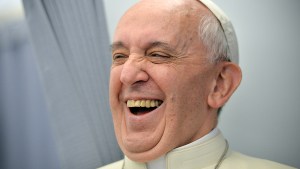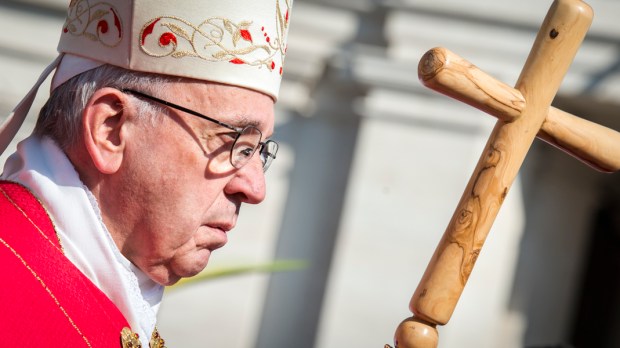Pope Francis drew from the complaints of the doctors of the law recounted in today’s Gospel to lament how frequently we fall into the habit of murmuring complaints under our breath, instead of recognizing the good in someone, or trying to find solutions to conflicts.
After speaking in this morning’s homily at Casa Santa Marta about the power of positive witness, the Holy Father went on to note how someone doing good is often met with resistance.
The Pharisees, the scribes, the doctors of the law complained about Jesus and how he interacted with sinners, saying, “He welcomes sinners, and eats with them.” They did not say, “Look, this man seems to be good because he seeks to convert sinners,” Francis observed.
This sin of complaining about others, the pope said, is a part of daily life, in big and small ways. In our own lives, we can find ourselves murmuring “because we don’t like something or other”; and instead of dialoguing, or “trying to resolve a conflict situation, we secretly complain, always in a low voice, because there is no courage to speak clearly.”
And so it happens, he said, even in smaller societies, “in parishes.” “How often is there murmuring in parishes?” he asked, pointing out that whenever “I don’t like the testimony, or there is a person that I don’t like, murmuring immediately breaks out.”
And in dioceses? ‘Intra-diocesan’ conflicts… Internal conflict within the diocese. You know this. And also in politics. And this is bad. When a government is not honest, it seeks to soil its opponents with murmuring. […] Murmuring is our daily bread, at the level of persons, of the family, the parish, the diocese, the social level.

Read more:
Pope’s advice for parish workers: Don’t take your coffee with vinegar!
Francis suggests that this practice is a way to “not look at reality.”
Jesus knows this, the pope said, but the Lord is good, and “instead of condemning them for murmuring,” He asks a question. “He uses the method they use.” They ask questions with evil intentions, in order to test Jesus, “to make Him fall.”
Jesus in turn asks them a question: “Which one of you, having a hundred sheep, if he has lost one of them, does not leave the ninety-nine in the wilderness, and go after the one which is lost, until he finds it?”
Jesus thus contrasts the logic of God with the logic of the world.
Francis concluded his homily praying, “That the Lord might make us understand this logic of the Gospel, in contrast to the logic of the world.”

